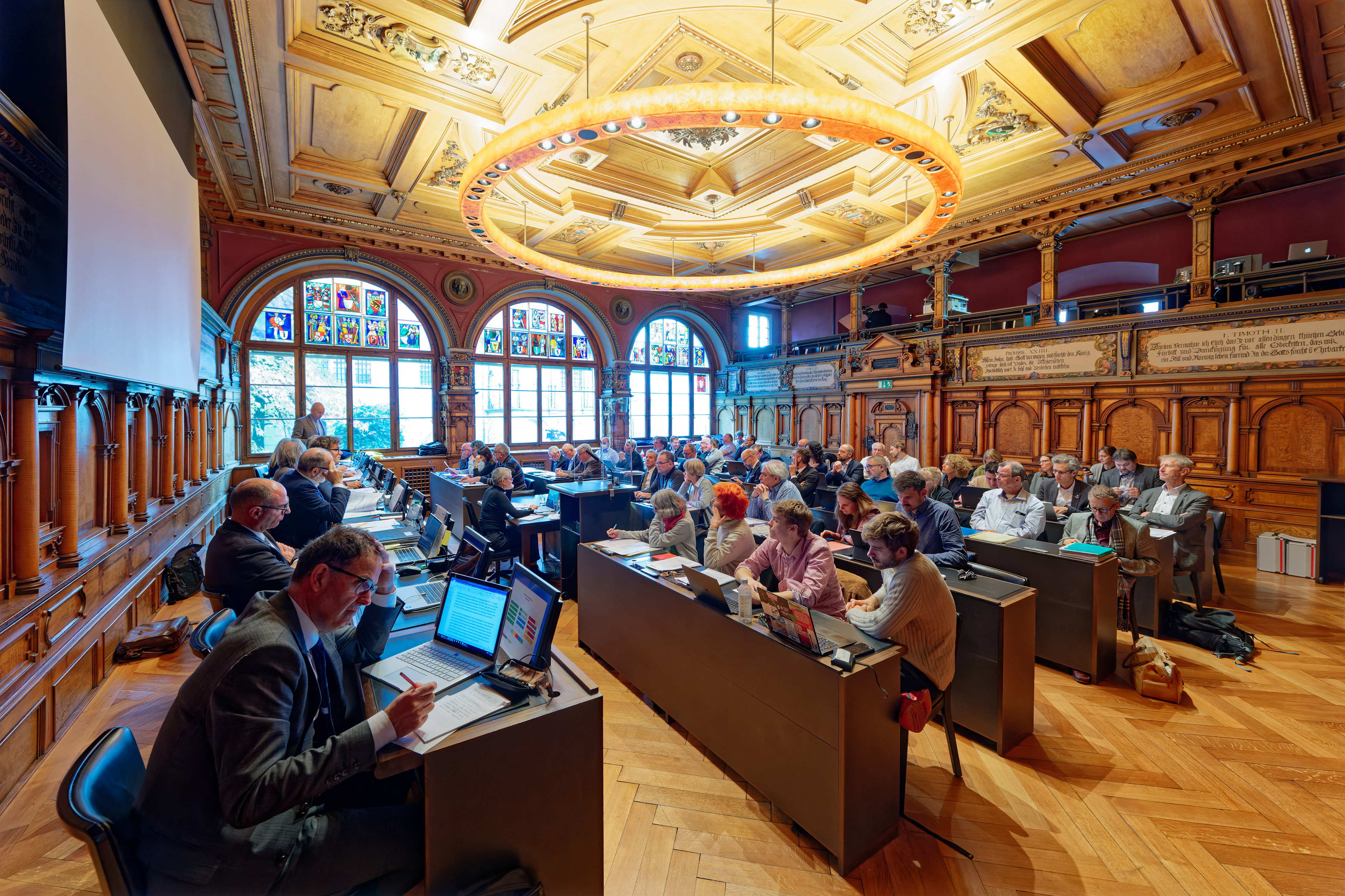
POLITICAL LIFE
DEMOCRATIC SYSTEM
Swiss democracy offers many opportunities to express yourself and participate in public life. When you become naturalised, you gain all the political rights, both national and for the canton of Schaffhausen and the municipality where you live. The political rights, also called popular or political participation rights, are very far reaching: right to vote, right to elect, right of initiative, right of referendum. The people can thus propose an amendment to the constitution (right of initiative) or can reject a law developed by the parliament (right of referendum). When the word “sovereign” is used in Switzerland, it denotes the people. Political rights are exercised at the three levels of the state: federal administration, cantons, and municipalities.
Elections and referenda
The federal, cantonal and municipal parliaments and executives are elected by the people every four years. In addition to the elections, the voters are also required to vote on proposals. Incidentally, for decades the canton of Schaffhausen has had the highest voting turnout in Switzerland. This is also because voting is mandatory in the canton of Schaffhausen. People who do not participate in a vote pay a “fine” of six francs pursuant to the Elections Act.
Separation of powers
The state is divided into three areas: parliament (legislative), government (executive) and court (judiciary). The legislative issues laws and controls the government and the administration. The executive implements the laws, governs and administers the state. The judiciary passes rulings, judges, punishes and protects. For each area, there are separate institutions at the level of the federal government, cantons and municipality.
At the federal level, the Federal Council forms the Swiss government. It is elected by the parliament. The parliament in turn is elected by the people and comprises two councils – the National Council and the Council of States. The canton of Schaffhausen is represented by two people each in the National Council and in the Council of States.
The Federal Court is elected by the parliament. The canton of Schaffhausen and its municipalities have organised the separation of powers as follows:
Legislative
Canton: the legislative cantonal authority is the cantonal council. The 60 members represent the various districts and political parties.
Municipalities: the legislative of the city of Schaffhausen is the Great Municipal Council. In some municipalities such as Neuhausen am Rheinfall, Stein am Rhein, Beringen and Thayngen, this function is carried out by the residents’ council. In the other municipalities it is the municipal assembly.
Executive
Canton: the cantonal government is comprised of five counsellors who each run a department. The presidency of the government is taken over every year by a government counsellor. Municipalities: the executive of the city of Schaffhausen is the municipal council. Stein am Rhein also has a municipal council; in all other municipalities, the executing authority is the municipal council.
Judiciary
The High Court is the highest court in the canton of Schaffhausen. It is responsible for jurisdiction in all areas of law and supervision of all independent judiciary authorities in the canton. These are, for instance, the cantonal court, the debt collection and bankruptcy office, the justice of the peace office, the arbitration centre for tenancy matters, the child and adult protection authority, and more.
OPPORTUNITIES FOR PARTICIPATION BY FOREIGNERS IN POLITICS
Although foreigners in the canton of Schaffhausen cannot exercise the political rights mentioned, there are numerous other opportunities to participate in public life and influencing the future of the community. A foreigner can be active at any time in a district association, a local club, a professional organisation, a sports club or on an advisory committee. Like Swiss nationals, a foreigner has a right of petition. The right of petition gives each and every individual the right to submit enquiries, suggestions, criticism or complaints to the authorities at municipal, cantonal or federal level. Decisions made by the state organisations may therefore possibly be influenced.
NATURALISATION
With naturalisation, a person acquires political rights in Switzerland. People who have resided in Switzerland for an extended period can apply for Swiss civil rights. Whether ordinary, simplified or facilitated naturalisation applies essentially depends on the length of stay and the reason for stay in Switzerland. In the case of facilitated naturalisation (usually spouses of Swiss nationals), the application is submitted directly to the federal administration, otherwise, the request is submitted to the municipality of residence in the canton of Schaffhausen. It is expected that persons wanting to become naturalised will meet the following requirements:
- They are integrated into the municipal, cantonal and Swiss environment;
- They are familiar with Swiss lifestyle, customs and traditions;
- They comply with the Swiss legal system and do not jeopardise Switzerland’s internal or external security;
- They have sufficient knowledge of German;
- Their personal and financial circumstances are in good order.
(Statements in Art. 6 of the canton of Schaffhausen’s Citizenship Act).